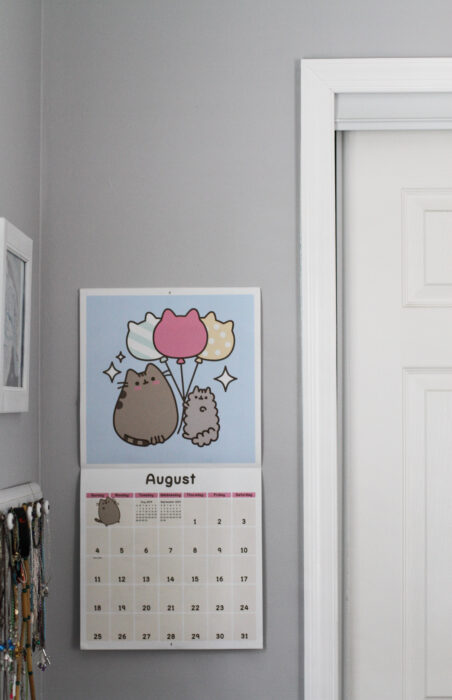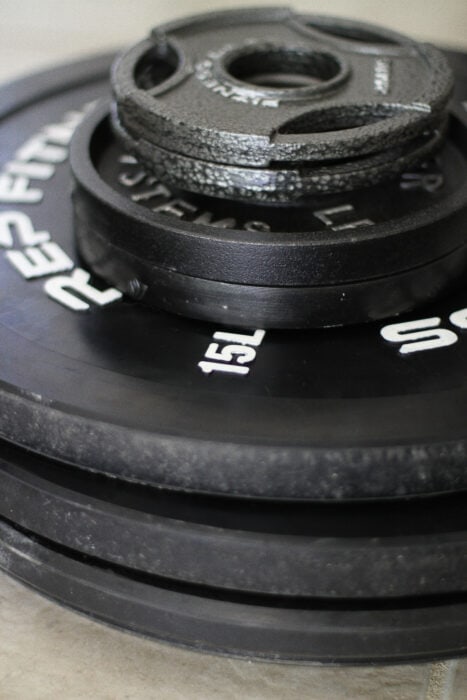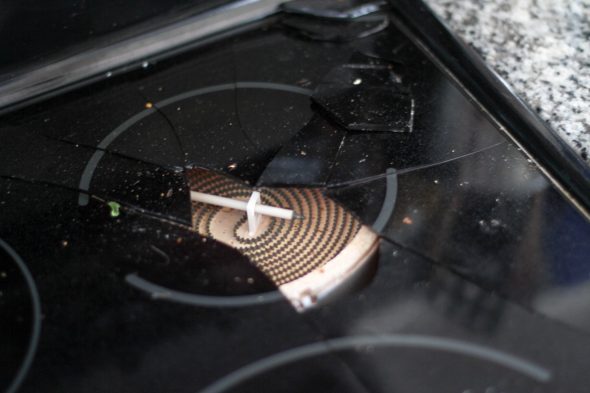In the recent survey I did, a reader left this question:
What should you do when you have failed and bought something that doesn’t work/was not necessary/isn’t easy to resell? I especially wonder about your thoughts in such situations. Do you criticize yourself? Or is it ok to slip? Do you control harder afterwards?

My immediate reaction to a money mistake made by me
I wrote a tongue-in-cheek post a little while back called 5 Ways to Make Yourself Miserable After a Money Mistake, and a short answer to the above question would be: Do the opposite of all five of those things.
But I thought maybe a non-tongue-in-cheek post would be a helpful companion to the silly one.
Here’s what I try to do when I’ve made a money mistake.
1. Remember what’s done is done
If you can’t return/resell/undo your money mistake, then it is done.
It’s water under the bridge; you aren’t going to get it back.

This photo is relevant because I took it from a bridge. You just can’t see the bridge. 😉
And not to be Captain Obvious, but obsessing about your mistake will not erase it.
Do I still struggle to stop obsessing about mistakes?
YES. I’m right there with you.
But it does help if I remind myself that the mistake is done. Forward is the only way to look.
2. Figure out what you can learn from the mistake
Usually there’s some helpful data you can glean from your error.
For instance, you might learn:
- I can’t be trusted to cancel free trials
- I am not strong enough to resist buying ___ when I go to ____
- When I’m bored/tired/sad, I am prone to buying ___
- I lose track of bills when I put them in a pile with the rest of the mail
- There’s no grace period for this bill
- There’s a big cancellation fee for this appointment
- If I don’t have a dinner plan, I will be likely to get takeout (ME!)
This is just a tiny list of suggestions; obviously the data will vary from situation to situation.
3. Use the data to help you change course for the future
How could you avoid this same mistake in the future?
If you notice you always forget to cancel free trials, make a rule for yourself that you just will not ever sign up for a free trial (they’re not free if you forget to cancel!)
If you lose track of appointments and end up paying cancellation/missed appointment fees, try a new method of calendar-keeping.

(If I use a paper calendar, I remember appointments. If I use my phone calendar, I forget them! Do what works for you.)
If you forget to pay a bill, set up auto-pay. Auto-pay never forgets!
You may make more missteps along the way as you try to correct course, but keep viewing the missteps as more data. “I figured out another thing that doesn’t work for me. Time to try another tactic.”
4. Be grateful for what the mistake is teaching you
You know how Marie Kondo suggests looking at an item you’re decluttering (say, a treadmill) and saying, “Thank you for teaching me that I will never use an in-home treadmill.”
I like this because it’s forward-looking and it’s positive.
(Which is the opposite of wallowing in self-recrimination!)
Would it have been ideal to not buy the treadmill in the first place? Sure.
But the treadmill purchase is not a total waste if you learn from it.

Maybe you learned that:
- you hate exercising indoors
- you don’t like exercising alone
- you would rather exercise somewhere outside of your house
That information can help you correct course and make different decisions in the future.
The consequences of the mistake you made are painful, but we learn so, so much from pain. And the learning is a gift.
5. Remember that you are human
Every human on the planet makes mistakes. It is utterly impossible to avoid making them.
Since we’re not very logical creatures, we can think something like this, “Everyone makes mistakes. But I expect myself to never make a mistake.”

Should we try to avoid mistakes? Sure.
Should we try to learn from our mistakes? Sure.
But (and I mean this nicely) having an expectation that you will never make any mistakes is just stupid.
And I can say that because I’m sometimes stupid right there with you. 😉
(Please see: me beating myself up over breaking my stove!)
6. Don’t over-correct after a mistake
I know; after a mistake, it’s tempting to think, “Well, I just won’t spend any money on anything now so we can recover from this mistake.”

This is the post where I make lots of terrible faces.
If your mistake was enormous, you might need to tighten your budget up more.
But for more run-of-the-mill mistakes, it’s better to just gently course-correct. If you get too extreme with your budget-tightening, you probably won’t stick with it.
Figure out something that you can live with long-term and go with that. It’s better to keep to a medium-tight budget for 5 years than it is to keep to a bare-bones budget for 30 days and then give up.
7. Remind yourself of the good money things you’re doing
At first when I broke my stove, all I could see was the mistake.

But with a little time, I was able to see things like:
- I’ve cooked thousands of meals on that stove. It has paid for itself many times over, and those meals were so much cheaper than eating out.
- Because we consistently save, we have money set aside to repair/replace things in our home
- We found a highly-rated stove that promises to last a long time
- We bought the model that’s on clearance
- I’m going to cook thousands more meals on the new stove
You probably are doing good money things too; you just need to remind yourself of those so that you don’t see only the mistake.

Deidre
Saturday 15th of August 2020
- If its a regretted purchase of a physical item I forgive myself & donate it where I think it will be most needed or appreciated, which makes me feel so blessed to have enough o give away & it makes me really happy to think of the blessing it will be in someone else's life - If it's not a physical item or say breaking something; I forgive myself & I put it down to experience & try to learn from it but I will also be more frugal in some ways for a bit to average out the expenditure - I made what has felt like a huge financial mistake & it has taken some time to sort out how to manage it but I have also finally remembered that all I have came from God & the life here on earth is only temporary & I've decided to trust him & seek him.
Amber
Wednesday 12th of August 2020
I LOVE THIS POST! Thank you. It's so true and your observations on the "logic" of human nature is so spot on. Thanks for the food for thought today.
DeeDee
Wednesday 12th of August 2020
I love this post! It's true that we tend to beat ourselves up over mistakes, and Kristen is so good at putting things into perspective. I've always thought that there is a biological explanation for dwelling on mistakes: this is our brain's way of making sure we don't repeat the same mistake. I guess in earlier times, this was crucial to survival. Don't eat these berries again, don't mess with the larger tribe member, don't touch the twitching striped tail that's peeking out of the bushes. Although the latter may be redundant...
Ruth T
Wednesday 12th of August 2020
It helps me to think of how I would react if it happened to a friend. I'm typically better at being gracious to others than to myself, so if I think about how (for example) I'd want my friend Amanda to be kind and gracious to herself in such a situation, then it's easier for me to feel like it's ok to be gracious with myself.
WilliamB
Wednesday 12th of August 2020
That's brilliant. I hope I remember that when I need to.
Steph
Wednesday 12th of August 2020
This is a helpful post for me right now, and I especially like the point of reminding myself about the good financial things I'm doing. I feel like I have recently overspent on clothing for our household but it's (mostly) stuff we need. We are really hard on clothing and kids grow out of things, so I buy clothes. I guess the good thing that offsets this expense is that I shop for sales. I've also been hard on myself lately about large grocery bills, but I'm going to the store less than usual. So while spending over $300 at the grocery store stings a bit, that stretches for 2-3 weeks to feed 3 people (including growing boys). Keeping things in perspective and gently course correcting help me get back on track. Thanks Kristen! Just what I needed to hear.
Kristen
Thursday 13th of August 2020
I am so glad that the timing of this post was helpful for you. Yay!